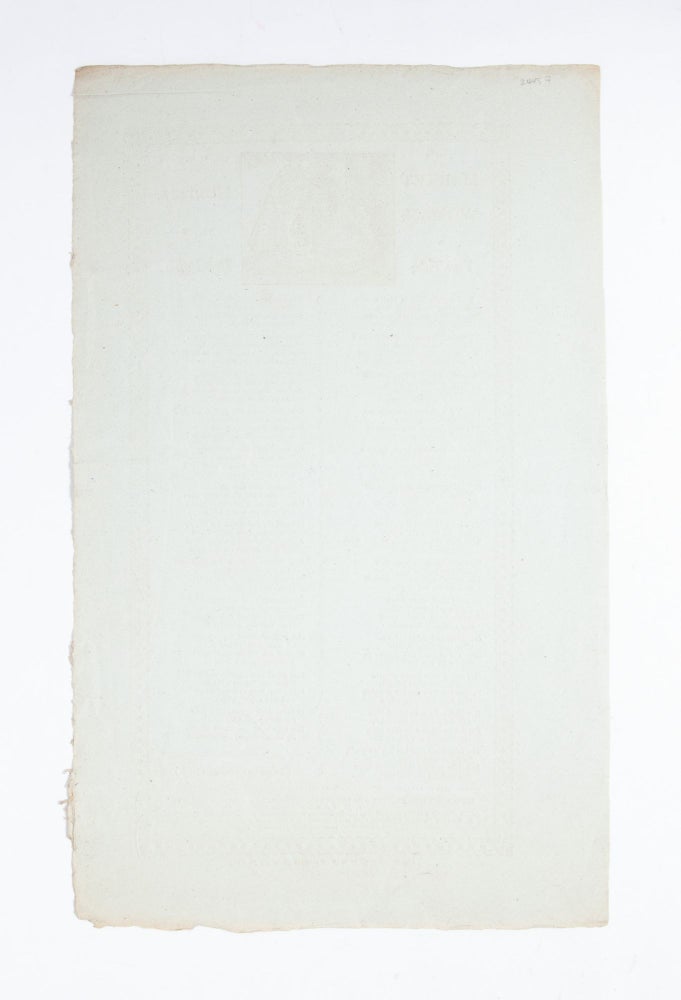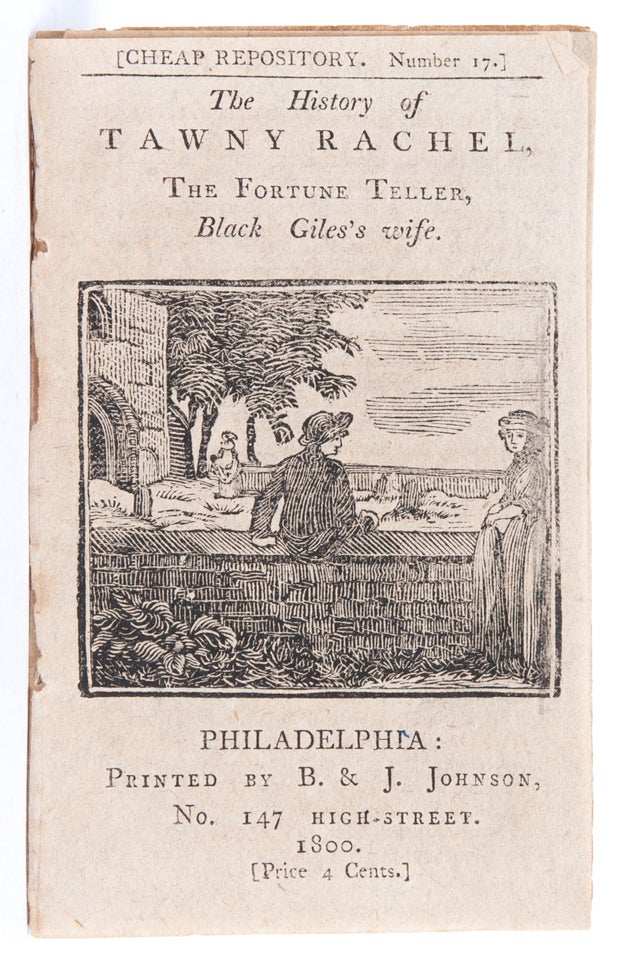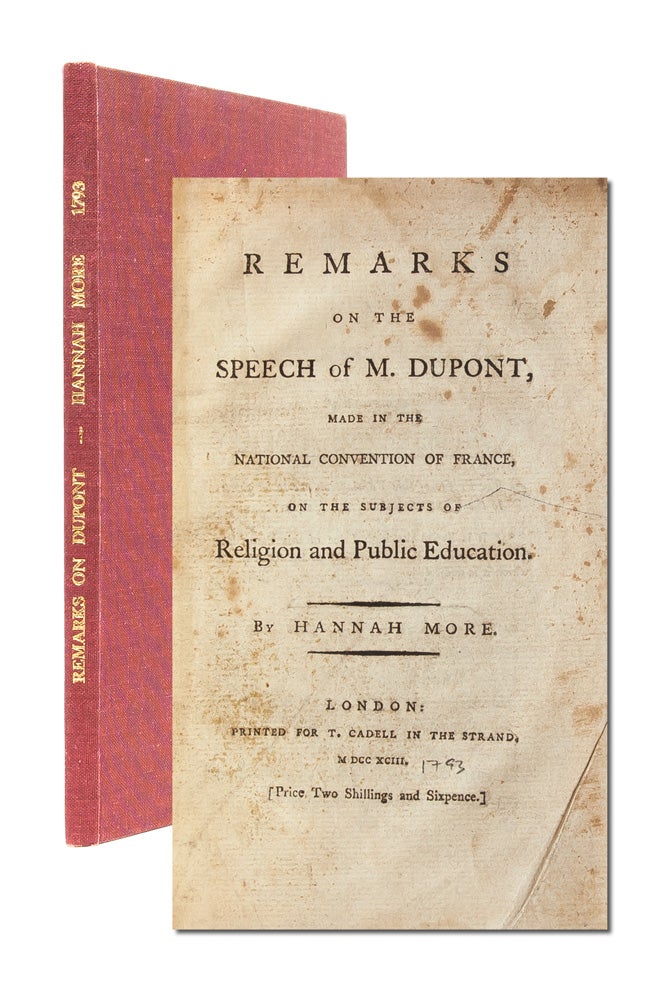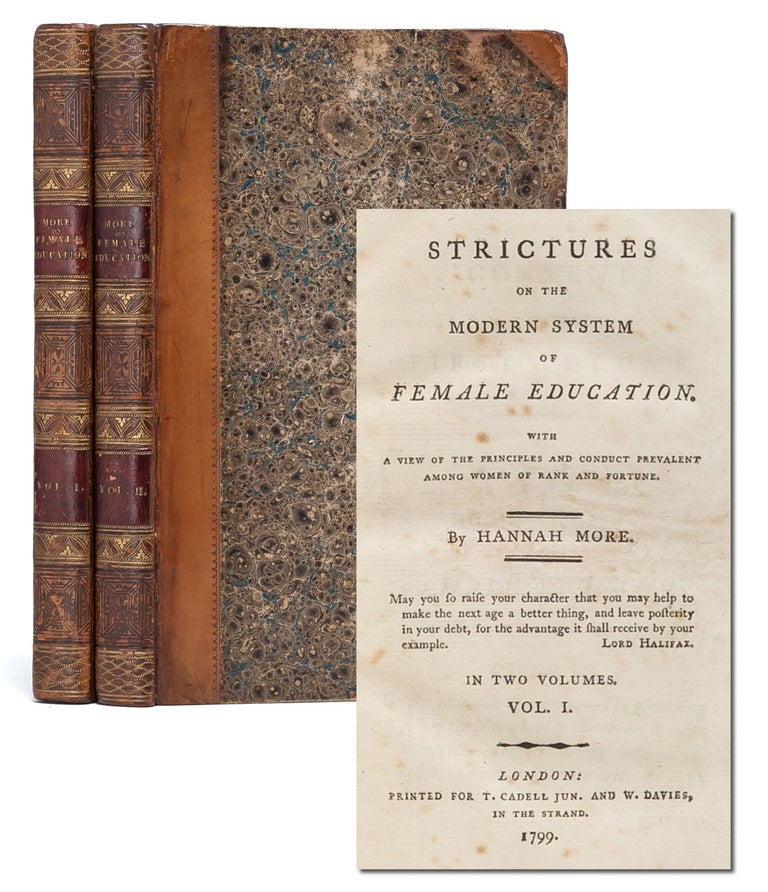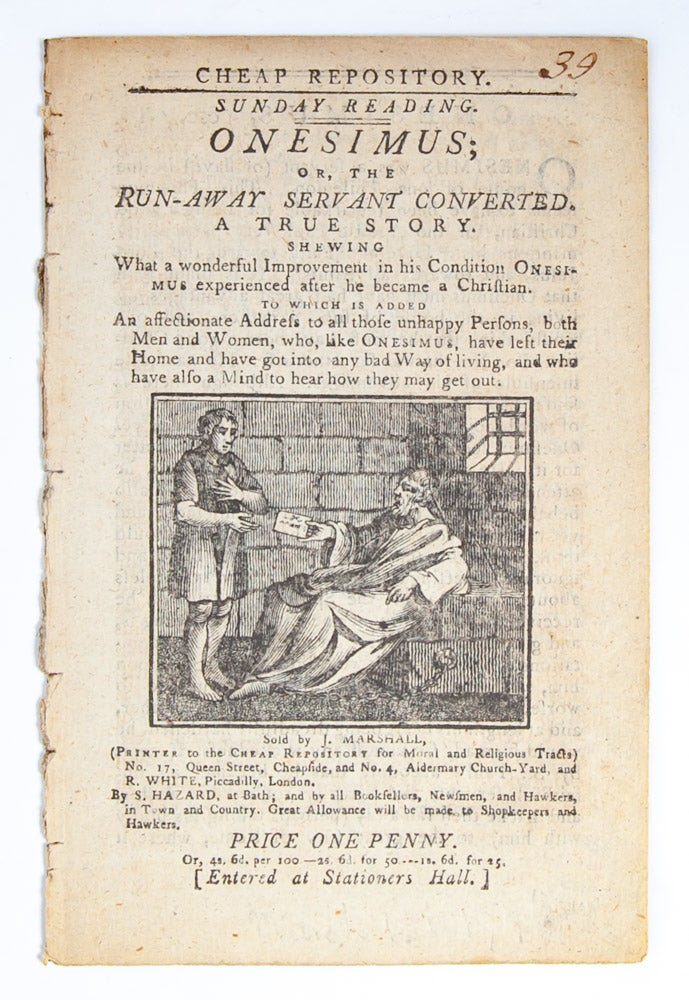The Market Woman, a True Tale; or, Honesty is the Best Policy
Bath and London: S. Hazard, J. Marshall, and R. White, [1795].
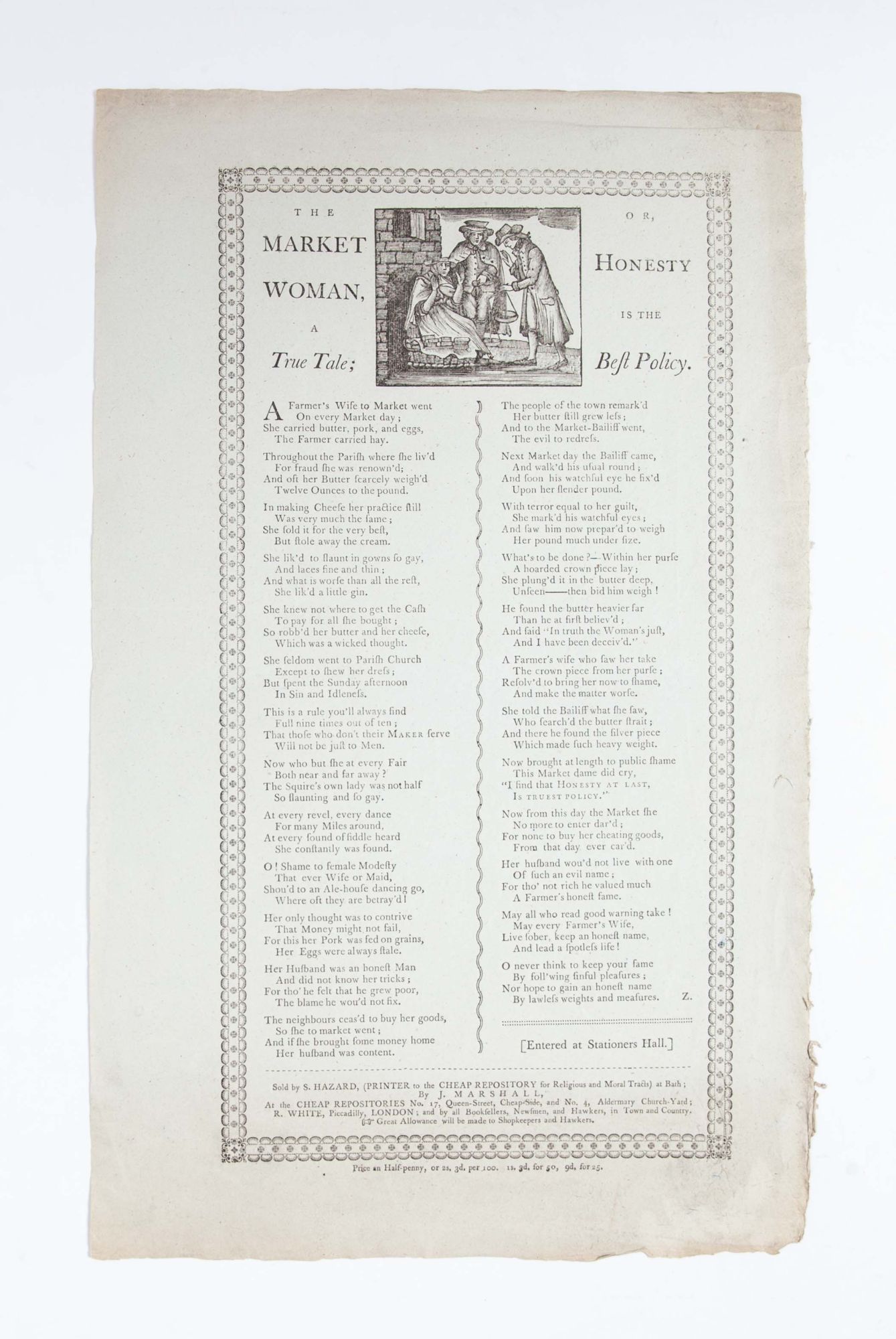

The Market Woman, a True Tale; or, Honesty is the Best Policy
Bath and London: S. Hazard, J. Marshall, and R. White, [1795]. First edition. First issue, with Spinney recording this form of imprint in use from March to May of 1795; the second variant, also scarce, was used from May 1795 through early 1796. Broadside ballad on one sheet measuring 420 x 270mm and printed to recto only. Woodcut ornament at head; signed Z [Hannah More] at end. In Near Fine condition, with a bit of light fraying and soiling to fore-edge and bottom edge; faint crease above header. Overall fresh and unmarked. ESTC reports 12 libraries holding copies (with the BL, Oxford, and Harvard reporting duplicates). It does not appear in the modern auction record, and the present is the only example on the market.
Four years before her influential treatise Strictures on the Modern System of Female Education, Hannah More used several of her Cheap Repository Tracts to articulate her ideas in narrative form. In The Market Woman, she focuses in on women's vulnerability to fashion -- not only clothing, but also revels such as dancing and drinking -- and the financial, filial, and personal costs that can result. Going to market each day because her neighbors will no longer buy from her, the Farmer's Wife cheats her customers for personal profit because "she lik'd to flaunt in gowns so gay, And laces fine and thin; And is worse than all the rest, She lik'd a little gin." Funding her habits to the detriment of her household finances ("her Husband was an honest Man And did not know her tricks") and her community, she also risks her own reputation. Frustrated with being swindled, townspeople report her to the Market Bailiff; and when he demands to weigh her butter, she inserts a coin inside to avoid coming up short and facing consequences. But even this is brought to light. As a result, she loses her husband who "wou'd not live with one Of such an evil name"; but worse, she loses her chance at "an honest name."
The concerns of propriety and reputation become centerpieces of More's later treatise, admonishing women on "appearing to behave properly in public in order to get a good reputation"; for it is only with the public trust that comes with a good reputation that women "can enact change" (Constructing Women's Reputations). Pleasant public behavior was, in her perspective, used to "combine and express all moral and intellectual excellence" (Strictures). While numerous of the Cheap Repository Tracts emphasize God's grace or present women like the Farmer's Wife repenting and finding Grace, no such ending occurs here. Rather, More seems more interested in how the vapid fashions women are encouraged toward can lead them onto destructive paths that ultimately deplete them of public authority or any opportunity to create communal change, instead feeding into the stereotypes so often used to deny them access to educational or activist spaces.
ESTC T38985. Spinney 20:3, 142. Feminist Companion 760. (Item #5090)

